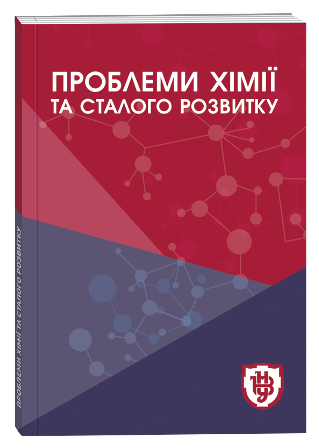THEORETICAL AND METHODOLOGICAL PREREQUISITES FOR THE DEVELOPMENT OF UNIVERSAL COMPETENCIES (SOFT SKILLS) OF FUTURE SOCIONOMIC PROFESSIONALS IN THE CONTEXT OF DIGITAL TRANSFORMATION
DOI:
https://doi.org/10.32782/pcsd-2025-3-13Keywords:
digitalization, universal competencies, digital competence, digital transformation, future socionomic professionals, learnersAbstract
The focus on universal (transversal) competencies of future specialists in socionomic professions is determined by rapid changes in the professional sphere, production and economic relations, as well as global social transformations. The professional reality of the 21st century demonstrates the necessity for a universal form of certification for future socionomic professionals, serving as an indicator of the level of their universal competencies developed during higher education. For future socionomic specialists, attitudes toward a range of general professional skills have shifted significantly. These include the ability to flexibly and adequately respond to social reality, the capacity to construct a positive vision of the future, leadership qualities, teamwork skills, emotional self-regulation, creativity in solving professional and other tasks, and resilience. Among the essential cross-professional skills in the socionomic domain are conflict resolution abilities, effective communication, media literacy, critical thinking skills, and overall communicative culture as a vital personal trait of a professional.The issue of developing soft skills in future socionomic professionals is especially relevant in the context of digitalization, which requires a transformation of thinking to achieve educational goals and objectives. This paper emphasizes that universal competencies (soft skills) are a set of general abilities closely related to personal qualities. Unlike hard skills, which encompass theoretical knowledge and practical experience that can be taught, soft skills are innate, non-technical attributes that reflect an individual's approach to work. Their foundation lies in the personality of the future professional and the way they interact with others.
References
Алєксєєва С. Цифрова компетентність: змістовні домінанти та тенденції. Перспективи та інновації науки. (Серія «Педагогіка»). 2023. № 9 (27). С. 70–78. DOI: https://doi.org/10.52058/2786-4952-2023-9(27)-70-78
Білик Н. І. Роль емоційного інтелекту в підготовці майбутніх фахівців соціономічних професій. Молодий вчений. 2023. № 2 (114). С. 138–142. DOI: https://doi.org/10.32839/2304-5809/2023-2-114-29
Мельниченко О. А. Роль емоційного інтелекту у формуванні професійних soft skills студентів. Гуманітарний вісник. Серія: Педагогіка. 2022. № 8(56). С. 93–98.
Овдійчук В. Цифрова компетентність як одна з базових компетентностей майбутніх учителів інформатики. Освіта. Інноватика. Практика. 2025. 3 (13), 64–69. DOI: https://doi.org/10.31110/2616-650X-vol13i3-010
Савіцька В. В. Теоретико-методологічні основи проєктування освітнього процесу у закладах вищої освіти в умовах цифровізації. Інноваційні технології навчання в умовах модернізації сучасної освіти: колективна монографія / за заг. ред. Л. З. Ребухи. Тернопіль: ЗУНУ, 2022. С. 67–83.
Сікора Я. Б. Теоретико-методичні засади системи професійної підготовки майбутніх фахівців з інформаційних технологій в умовах цифровізації: дис. … д-ра пед. наук: 13.00.04 / Житомирський держ. ун-т ім. Івана Франка. Житомир, 2025. 709 с.
Aldulaimi S. H. Leadership soft skills in higher education institutions. Social Science Learning Education Journal. 2018. Vol. 3, No. 7. P. 1–8. DOI: https://doi.org/10.15520/sslej.v3i7.2219.
Basilotta Gómez Pablos V., García-Valcárcel A., Vázquez-Martínez A. Teachers’ digital competencies in higher education: a systematic review. International Journal of Educational Technology in Higher Education. 2022. Vol. 19. Article 8. DOI: https://doi.org/10.1186/s41239-022-00314-7.
Bikse V., Lusena-Ezera I., Rivza P., Rivza B. The development of digital transformation and relevant competencies for employees in the context of the impact of the COVID-19 pandemic in Latvia. Sustainability. 2021. Vol. 13, No. 16. Article 9233. DOI: https://doi.org/10.3390/su13169233.
Cimatti B. Definition, development, assessment of soft skills and their role for the quality of organizations and enterprises. International Journal for Quality Research. 2016. Vol. 10, No. 1. P. 97–130. DOI: https://doi.org/10.18421/IJQR10.01-05.
Coelho M. J., Martins H. The future of soft skills development: a systematic review of the literature of the digital training practices for soft skills. Journal of e-Learning and Knowledge Society. 2022. Vol. 18, No. 2. P. 78–85. DOI: https://doi.org/10.20368/1971-8829/1135576.
Franco P. F., DeLuca D. A. Learning through action: creating and implementing a strategy game to foster innovative thinking in higher education. Simulation & Gaming. 2019. Vol. 50, No. 1. P. 23–43. DOI: https://doi.org/10.1177/1046878118820892.
Golowko N. The need for digital and soft skills in the Romanian business service industry. Management and Marketing. 2018. Vol. 13, No. 1. P. 831–847. DOI: https://doi.org/10.2478/mmcks-2018-0008.
Laker D., Powell J. The differences between hard and soft skills and their relative impact on training transfer. Human Resource Development Quarterly. 2011. Vol. 22, No. 1. P. 111–122. DOI: https://doi.org/10.1002/hrdq.20063111.
Law N., Woo D., Wong G. A global framework of reference on digital literacy skills for indicator 4.4.2 : monograph. Montreal: UNESCO Institute for Statistics, 2018. URL: http://uis.unesco.org/sites/default/files/documents/ip51-global-framework-reference-digital-literacy-skills-2018-en.pdf.
Tomczyk Ł., Potyrała K., Wójcik M., et al. Digital competence among pre-service teachers: a global perspective. Evaluation and Program Planning. 2024. Vol. 105. Article 102449. DOI: https://doi.org/10.1016/j.evalprogplan.2024.102449.








